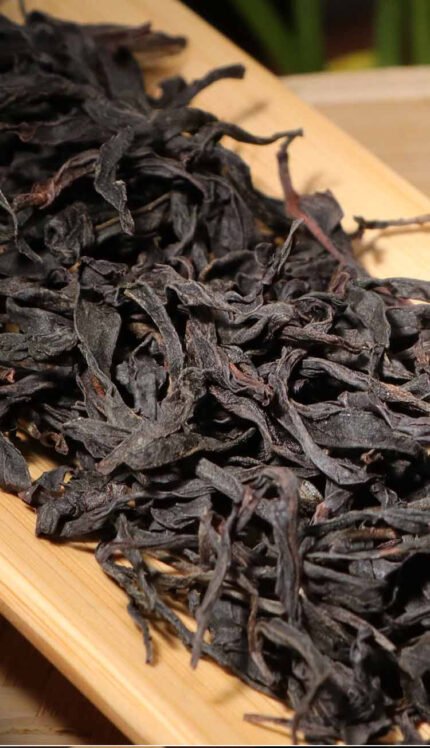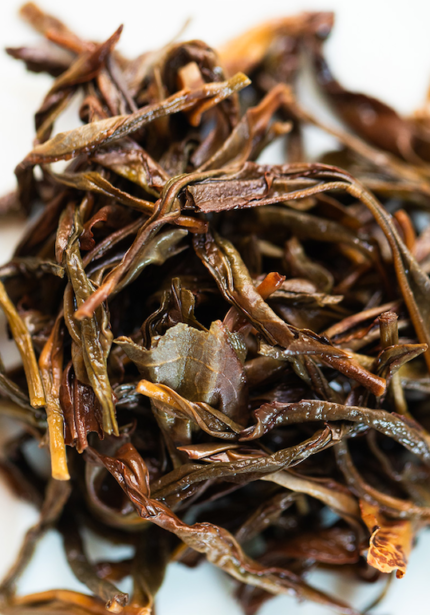Our oolong tea has been cultivated for 1500 years to prove that true top-quality oolong tea can stand the test of time. Every bite is a thousand years of wisdom. The emperor of China’s Ming Dynasty cured anorexia with oolong tea, and it was directly named tribute tea. Really good oolong tea still retains its fragrance after being steeped for 7 times, while ordinary tea bags are much less fragrant after just three steepings. It is a natural fat-reducing tool. The tea polyphenols + oolong tea polysaccharides produced by semi-fermentation allow people to gain weight even if they eat sweets. It is a natural beauty lotion that has antioxidant power that beats vitamin C. But the processing cost of top-quality oolong tea is particularly high.
The tea of Danzhu Jieluo is not grown in self-cultivated tea gardens, because the spirit tea must come from wild ancient tree tea with “plentiful spiritual energy in the ground and long and lush trees” and is processed using ancient methods. Therefore, it is purely wild, 0 pesticide residues, 0 additives, and absorbs the essence of local ancient tree tea. These tea trees have been rooted in the soil for hundreds or even thousands of years, absorbing the essence of the earth and protecting the secrets of the years. Due to environmental and time constraints, the amount of ancient tree tea picked each year is extremely limited. Of course, such tea trees are relatively rare, so every gram of Danzhu Jieluo’s tea is an orphan, collection grade, and cannot be mass-produced. It can only be supplied in limited quantities. Some ancient tea trees even need to be booked a year in advance. Being able to buy it is a blessing.
The production process is very complicated: shaking the green tea is like doing Tai Chi: tea farmers shake the bamboo sieve in the middle of the night, so that the tea leaves collide with the red edge, and the aroma changes from grassy to fruity (the top Tieguanyin needs to be shaken green more than 5 times). Charcoal baking is comparable to alchemy: Wu Yiyan tea is slow-roasted over lychee charcoal fire, and the master chef keeps watch for three days and three nights. The time cost of ruining a pot of tea is staggering: from picking to finished product, Dahongpao takes half a year. Compared with Pu’er tea, it pays more attention to “slow work and careful work”





